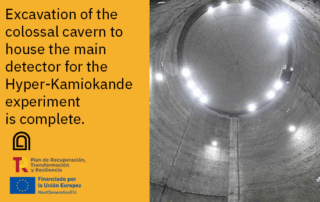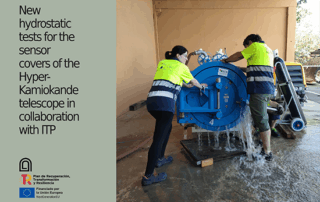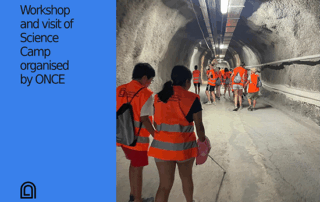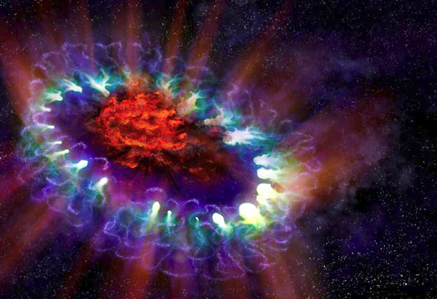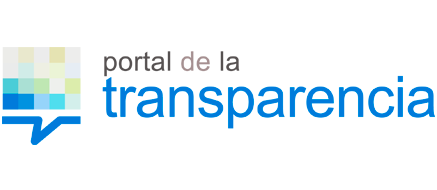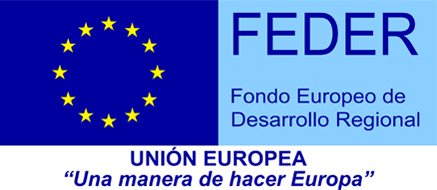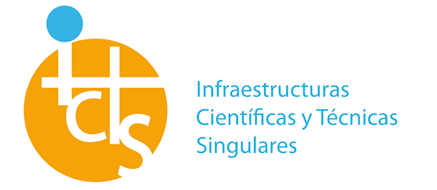Featured News
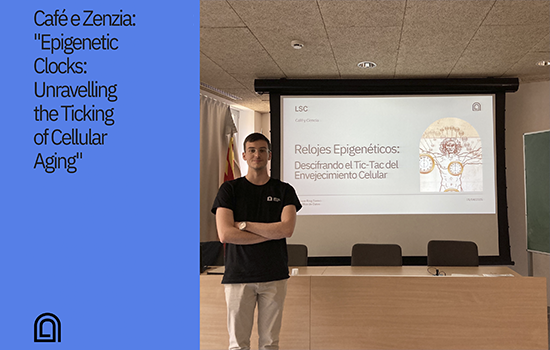
Café e Zenzia: “Epigenetic Clocks: Unravelling the Ticking of Cellular Aging”
At the LSC, we organize informal talks where our staff share the progress of their research, always accompanied by a coffee. On April 1st, our colleague Enrique Roig presented the latest advances from his PhD thesis on cellular aging, focused on the development of an epigenetic clock, a bioinformatics tool capable of predicting age based on methylation patterns. Bioinformatics is beginning to make its way into experiments at the LSC.
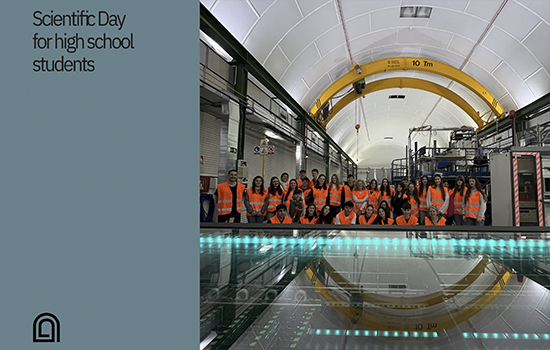
Scientific Day for high school students
On March 26, the LSC held its Science Day for the second year in a row, welcoming students from the 2nd year of Bachillerato from schools in Jaca. Throughout the day, students took part in various workshops and learned about key techniques used at the LSC, such as copper electroforming and gamma spectroscopy. As in the previous edition, the day concluded with a visit to our underground facilities.
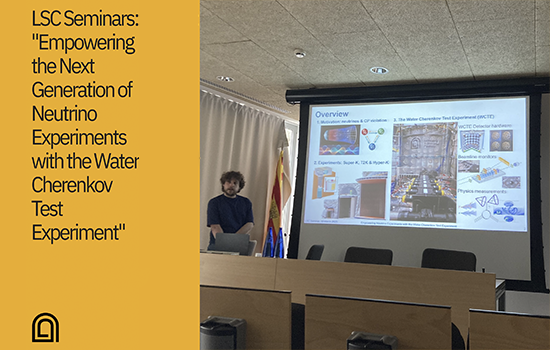
LSC Seminars: “Empowering the Next Generation of Neutrino Experiments with the Water Cherenkov Test Experiment”
Nicholas Prouse, a researcher at Imperial College London , presented in his seminar the Water Cherenkov Test Experiment (WCTE), which began collecting data at the end of 2024 in the CERN T9 beam. The data collected by WCTE will be used to improve pion reconstruction in water Cherenkov detectors and to analyze interaction cross-sections using a known particle flux. The results of this experiment will have a direct impact on Super-K, T2K, and Hyper-K.
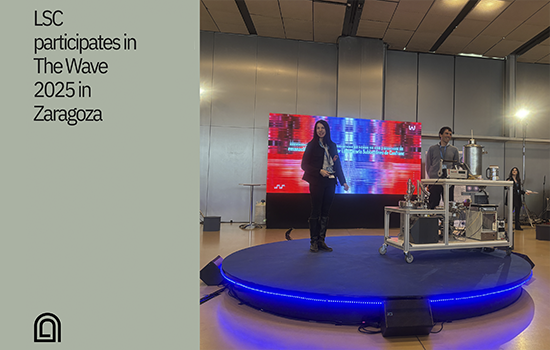
LSC participates in The Wave 2025 in Zaragoza
On March 19, the LSC participated in The Wave conference, held at the Zaragoza Conference Center, where we conducted a workshop on radon, given the national interest in this topic and our expertise in its air monitoring and the measurement of its emanation in materials. In its second edition, The Wave brought together experts and companies for three days to explore how to transform technology into a real competitive advantage.
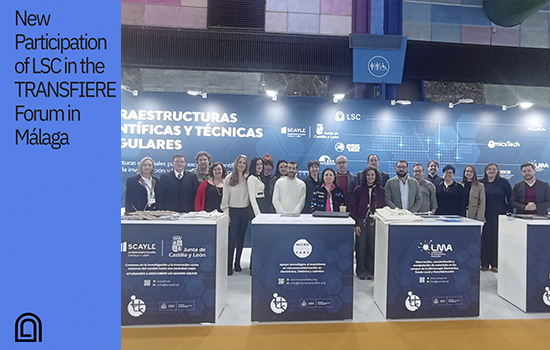
New Participation of LSC in the TRANSFIERE Forum in Málaga
From March 12 to 14, the LSC participated in TRANSFIERE, Spain's most important R&D&I fair, held in Málaga. This forum connects the entire Spanish innovation ecosystem and boosts its international projection, promoting the transfer of scientific and technological knowledge. Together with 11 other ICTS, we showcased the services we offer, reaffirming our commitment to maximizing the impact of research on society.
Excavation of the colossal cavern to house the main detector for the Hyper-Kamiokande experiment is complete.
On July 31, 2025, the Hyper-Kamiokande collaboration completed the excavation of the colossal cavern that will house the main detector volume of Hyper-Kamiokande, a next-generation ultra-pure water Cherenkov detector currently under construction in the city of Hida, Gifu, Japan.
New hydrostatic tests for the sensor covers of the Hyper-Kamiokande telescope in collaboration with ITP
A few weeks ago, we successfully completed a new hydrostatic test campaign to validate the protective covers for the sensors of the future Hyper-Kamiokande (HK) neutrino telescope. A team from the LSC traveled to the ITP facilities in Mòra d'Ebre (Tarragona) and tested 12 covers: two of them with acrylics aged with temperature and humidity to simulate transport to Japan, and another two submerged in water to study the effects of absorption on the final system. Another step forward for the LSC in this great international Project.
Workshop and visit of Science Camp organised by ONCE
Last Friday 4th July we had the pleasure of receiving a visit from the children taking part in the summer camps organized by ONCE (Spanish National Organisation for the Blind), which this year focused on Science. During their time at the LSC, our outreach team offered them an introductory workshop about the fascinating world of neutrinos and the detection techniques used in low-background experiments. The day ended with an exciting tour of our underground facilities. Thank you for coming and sharing your curiosity with us!




